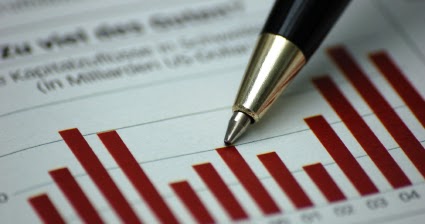Describe PageRank.
The PageRank algorithm was developed by Larry Page, the inventor of Google, and is named in his honour. It is an easy way to measure connections and link equity. Google examines a certain website and counts the links linking to it. In order to stop link farms from abusing their power, it also assesses the authority of such websites. A website with more inbound connections of higher quality will have a higher PageRank.
PageRank was a crucial indicator of a website’s quality for a very long time. Both webmasters and common people utilised it to determine if a website would be reliable. Although its usefulness in this situation has decreased, it was also used as a flag to set value on a website for domain resellers.
Over the last several years, PageRank has lost some of its significance. Google has gradually ceased updating the PR data, so your site’s PageRank won’t fluctuate over time. Updates are now only made twice a year, and they will be made less often in the future.
PageRank is still useful in Google’s internal algorithm, but it is no longer a useful statistic for the general audience.
How does Domain Authority work?
What-is-Domain-Authority
Moz.com developed the domain authority metric as a more precise measure of the site’s worth. It calculates the authority of the site using a logarithmic formula, similar to PageRank. On this scale, increasing from a low 30 to a 35 will be simpler than rising from an 80 to an 85. The ideal DA is 100, whereas a site that is not rated would have a DA of 0.
Several different SEO from india most notably the MozBar or the website Open Site Explorer, may be used to discover Domain Authority.
In comparison to Pagerank, DA is determined using a larger set of indicators. Several of the metrics consist of:
• The quantity and quality of inbound connections. Who connects to you, and how regularly do they do it? Getting backlinks from a broad range of reliable sites can help with this.
• The quantity and quality of outbound connections Who do you think deserves to be linked to? Are there too many connections in relation to the content? Do you connect to well-known spam domains or authoritative websites?
• Details about domain registration. Do you have 10, 20, or 30 domain names? Domains relating to the same material are monitored by Domain Authority. Other sites owned by that individual may be degraded if one of those sites turns out to be spammy or uses black hat techniques.
Age of a domain. Older domains may score a bit higher in Domain Authority since they have had more time to build greater trust. Many websites don’t survive through their first birthday. With the exception of purchasing an old, established domain, this statistic cannot actually be influenced outside.
Connect diversity. In general, it is preferable to have fewer incoming links from a larger variety of worthwhile websites than it is to have many incoming connections from just a few select websites.
Rank Page. Yes, Moz incorporates Google PageRank into the Domain Authority formula. This implies that Domain Authority is a broader, more precise assessment of a site by default.
• The spread of time. Specifically, the pattern of traffic and content over time. A website may have bought traffic from another website or witnessed a sudden increase in traffic due to a specific piece of content becoming viral.
• Distribution of values. How many of a site’s 100 pages are generally regarded as valuable? A website that has 75 out of 100 pages with moderate value will perform better than one with just 10 of 100 pages receiving links and visitors.
• Traffic statistics, such as the percentage of repeat visitors, the number of pages seen per visitor, the amount of time spent on the page, and the bounce rate of users Engagement will boost all of these.
• Hardware and software metrics, including as uptime, broken links, server response times, and code faults.
Additionally, there are several additional DA criteria, making the Moz measurement almost as complicated as Google’s algorithm.
PageRank vs. Domain Authority
Difference-Between-Domain-Authority-and-PageRank
These two rating systems vary in a few significant ways.
• PageRank is no longer useful, however Domain Authority is.
• Page Authority, which evaluates individual pages, and Domain Authority are closely linked concepts. PageRank merely examines the whole site.
• PageRank is determined by Google, while DA is determined by a third party.
• While DA may be used to quantify this connection, PageRank does not have a direct impact on how you appear in SERPs.
• DA contains a larger variety of indicators, while PR just measures the impact of connections.
• While PR does not update, DA does so numerous times each month.
• DA is more realistic for sites with comparable content than PR, which is calculated on a scale of 0 to 10.
• While PR is losing value as Google discontinues it, DA is improving with time as Moz tweaks the algorithm behind it.
It makes logical that many of the same factors that influence your rank in the SERPs and your user interaction also have an impact on your domain authority. DA measures your popularity, engagement, and SEO. Your Domain Authority will rise as a result of better metrics all around.
Also keep in mind that Moz provides a page-level version of the same computation. By using the domain, Page Authority works on each individual page, while DA and PR only affect the site as a whole. This is a useful method for assessing the scope of your website. Which pages are keeping your ranking low and have little authority? What are the pages performing well that have high authority? This analysis of your website will let you realise even more value in the statistic.







